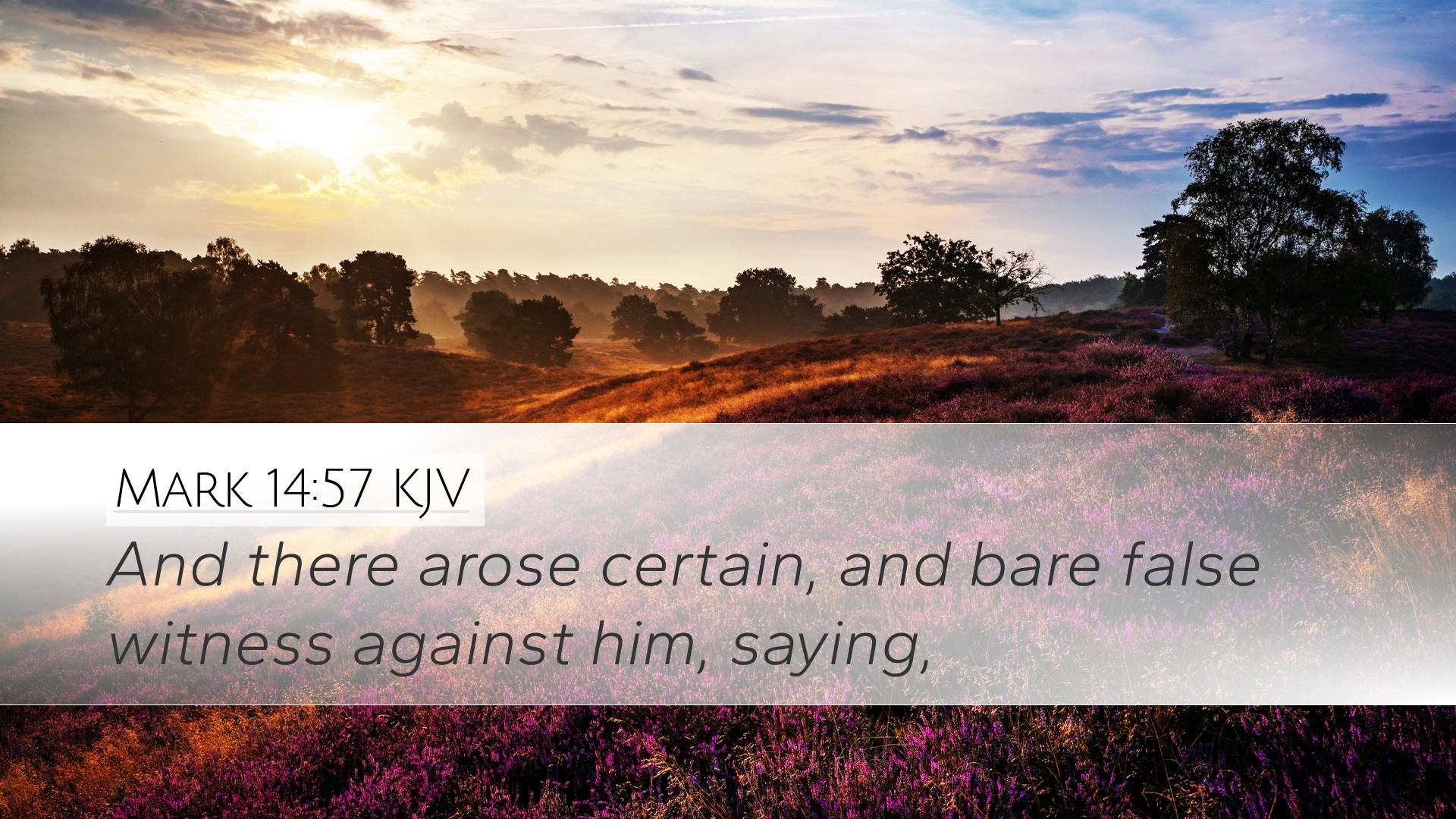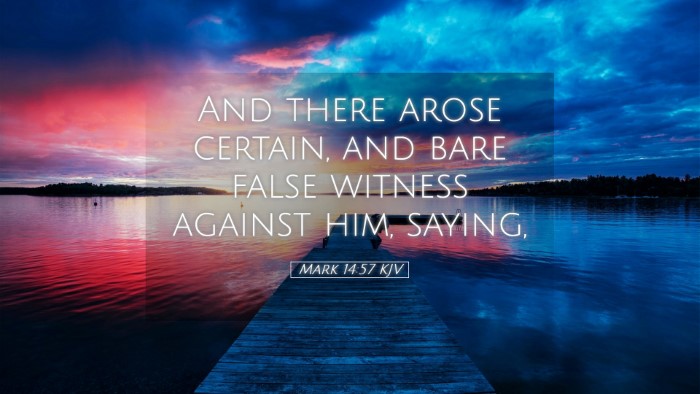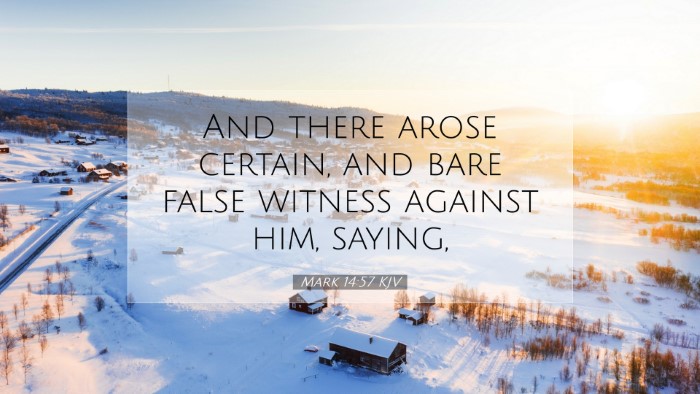Commentary on Mark 14:57
Mark 14:57 states: "And there arose certain, and bare false witness against him, saying."
Introduction
This verse occurs during the trial of Jesus before the Sanhedrin, capturing a critical moment in the narrative surrounding His passion. Public domain commentaries by esteemed theologians such as Matthew Henry, Albert Barnes, and Adam Clarke provide rich insights into the implications of this verse and the broader context of Jesus' trial.
Contextual Background
The Gospel of Mark presents a vivid portrayal of Jesus’ impending crucifixion, illustrating the growing opposition He faced from the religious leaders. Mark 14 details the events leading up to the arrest of Jesus, His betrayal by Judas, and the subsequent trial.
- The Setting: The trials occurred at night, which was unusual and unlawful in Jewish tradition, highlighting the illegitimacy of the proceedings.
- The Characters: The Jewish council, the high priest, and Jesus are the primary figures. The presence of false witnesses underscores the depth of hostility against Jesus.
The Nature of False Witness
This verse specifically addresses the false testimony rendered against Jesus. The act of bearing false witness is a serious violation of the ninth commandment, "You shall not bear false witness against your neighbor" (Exodus 20:16). Commentators provide insights as follows:
- Matthew Henry: He emphasizes that false witness is a tool of the wicked, and in the case of Jesus, it was motivated by jealousy and a desire to remove Him as a threat to their authority. He notes how the fulfillment of Old Testament prophecy illustrates God’s sovereign plan even amidst human sinfulness.
- Albert Barnes: Barnes discusses how such false accusations were part of a deliberate strategy by the Jewish leaders to discredit Jesus. He notes that their reliance on falsehoods reflects their own moral decay and desperation to maintain their power.
- Adam Clarke: Clarke draws attention to the sheer injustice of the trial process, including this false testimony. He points out that the nature of the accusations against Jesus—typically associated with blasphemy—was deliberate misrepresentation to generate public animosity against Him.
Biblical and Theological Implications
The act of bearing false witness has profound theological implications, particularly in relation to Christ's mission and character.
- The Integrity of Christ: Mark 14:57 speaks to the integrity of Jesus amidst profound injustice. Commentators note that despite the barrage of accusations, Jesus remained silent, fulfilling the prophecy of Isaiah 53:7 regarding the suffering servant.
- The Sovereignty of God: The presence of false witnesses is framed within the context of God’s sovereign plan for redemption. Matthew Henry articulates how the malicious actions of men serve to fulfill God’s will, emphasizing that even in evil, God's purposes prevail.
- The Call to Truthfulness: The verse serves as a stark reminder for Christians about the importance of truthfulness in their own witness. It encourages believers to speak truthfully and to uphold the integrity of their testimony about Jesus.
Practical Applications
As we reflect on the deeper meanings of Mark 14:57, several practical applications emerge for pastors, theologians, and students of the Bible:
- Understanding Persecution: This passage helps believers understand the nature of opposition they might face. Jesus’ experience serves as a model for enduring false accusations with grace and dignity.
- Pursuit of Justice: Just as the false witnesses acted unjustly, there is an ethical call for followers of Christ to advocate for justice and truth in their communities.
- God's Faithfulness: The unfolding of events in Jesus’ life shows that God’s plan can work through human folly and sin. This assures believers that even in times of darkness, God is at work.
Conclusion
Mark 14:57, while seemingly a brief glimpse into the trials of Jesus, invites significant reflection on the nature of testimony, the depth of human depravity, and the faithfulness of God in the face of sin. The insights from public domain commentaries enrich our understanding and challenge us to live out the truth of the Gospel in a world that often speaks otherwise.


